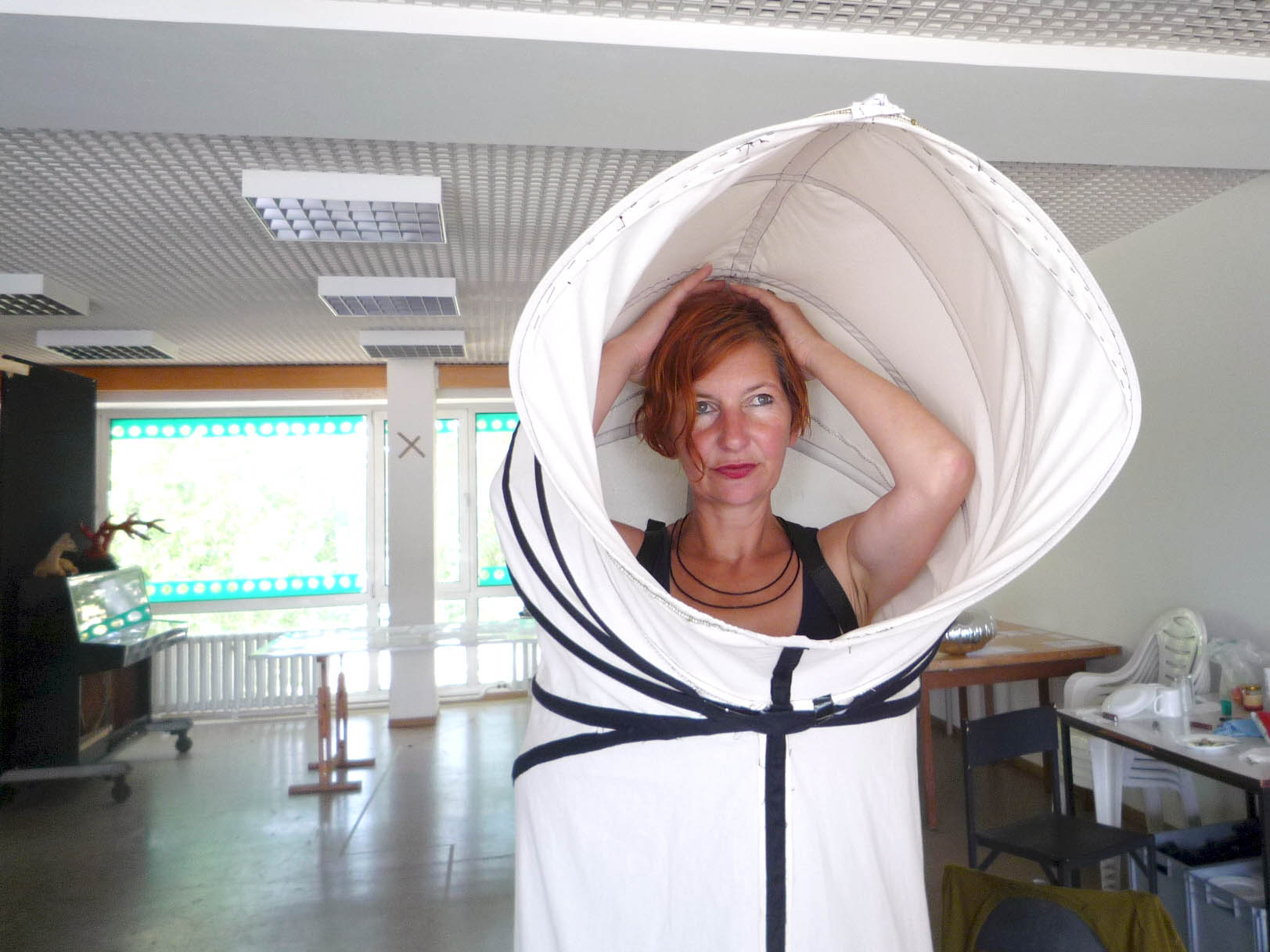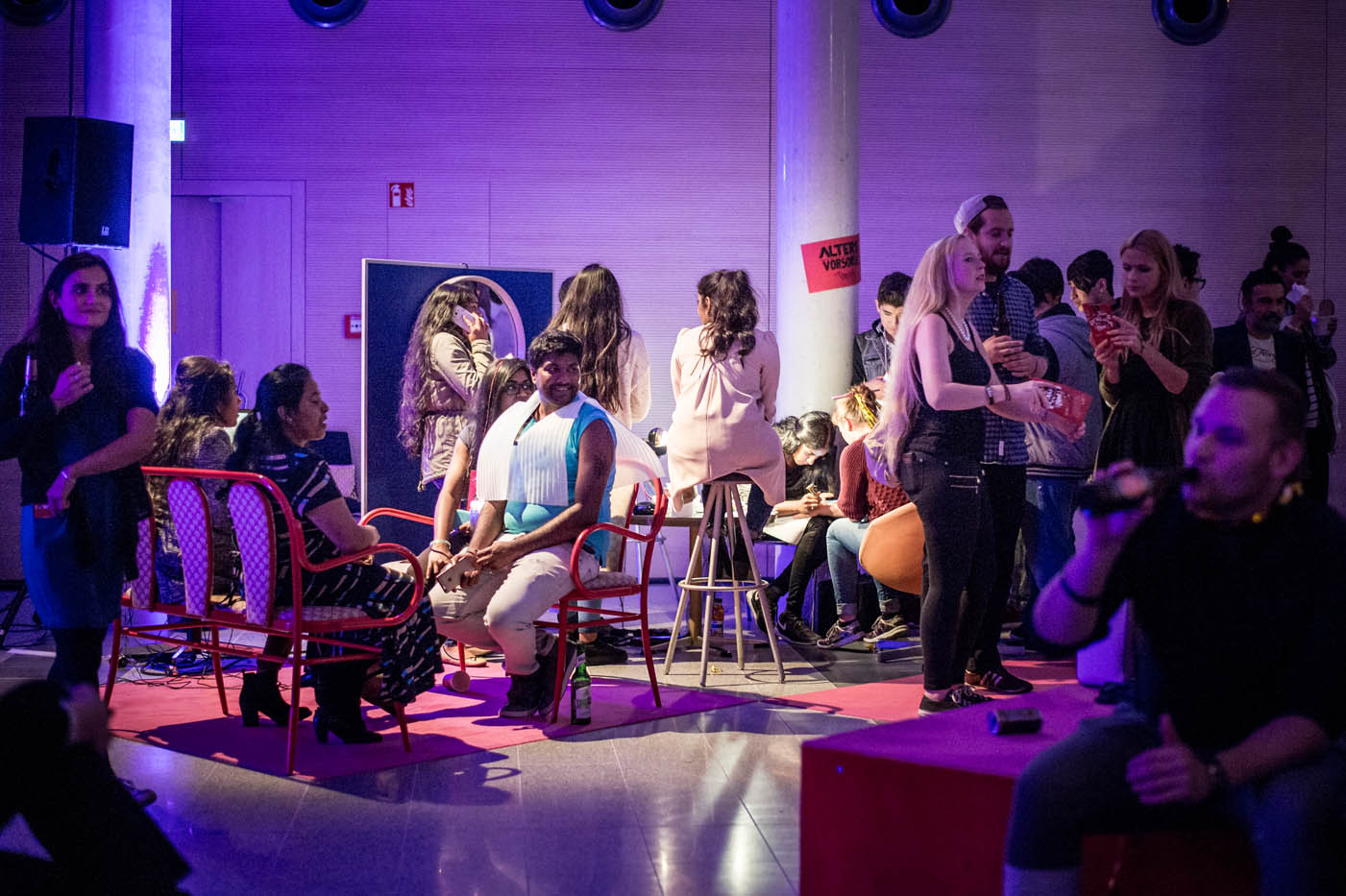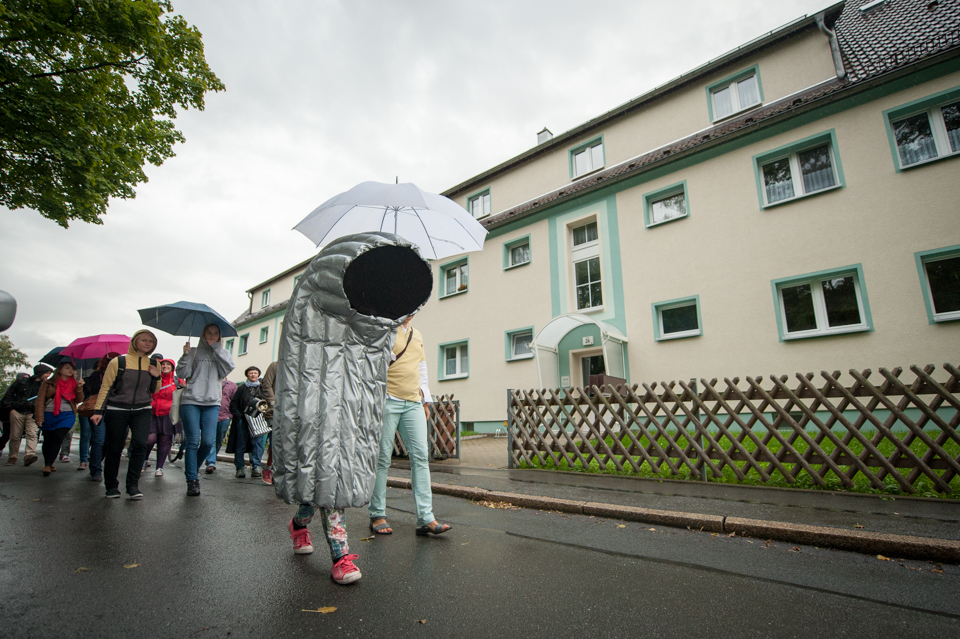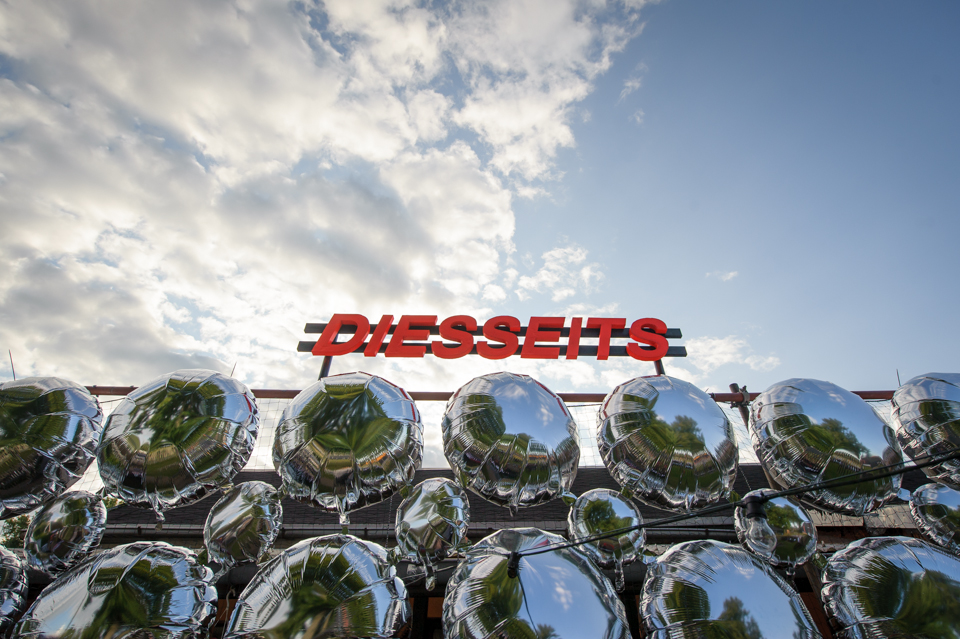Dorothea Ronneburg works as a freelance stage and costume designer. One focus of her work is site-specific interventions in public and semi-public spaces. She has an ongoing collaboration with the theater collective matthaei & konsorten, among others. We talked to Dorothea about her time at the Master’s program Stage Design_Scenic Space and about her artistic activities since then.
You studied at the master’s program Stage Design_Scenic Space from 2008-2010. Were you already able to make contacts in the field during your quite practice-oriented studies at the TU?
Yes, that is very fortunate. I found my director partner during my studies and we have been working together ever since. As a stage designer, you work very personally and very intensively in the area of a common idea, if it’s a good partnership. It’s a special relationship. You go through times of great intensity.
Is there anything you would do differently today?
I have already emphasized the practical aspect as very important, as above. However, the utopian aspect remained rather in the background for me as a result. In my first degree I studied at an art academy, here it was the other way around. The struggle for an idea, an innovation was everything. But I still benefit from that today. If I were to study at the TU again, I would try to go more into utopia and leave feasibility out of it for longer, because it’s only possible in this special time of a degree.
You previously studied interior design – did you already have your current profession in mind when you started studying at TU? With what expectations did you start your studies? Did your goals change during your studies?
Yes and no. I was already thinking of imaging classical theater or musical theater. However, the interdisciplinary field, especially the one that sees the city as a stage, interested me a lot even before I started studying. When the artist Jörg Lukas Matthaei gave me the opportunity to gain experience in this field, I was immediately passionate about it. I now have a lot of experience in equipping his large-scale projects, which are participatory and site-specific. The exciting thing is that my professions can be ideally combined here. As an interior designer, I let architecture develop from interior spaces and didn’t look at it from the outside. I have retained this attitude and apply it to all design tasks.
What was special about studying at the TU Berlin? What did it mean to live in a cultural metropolis like Berlin while studying?
The most significant thing is the experience of working as a team. Real, deep friendships have developed as a result. That is an invaluable asset and I am always happy about it. I moved away from my ‘old home’ after graduating and now live in the Berlin area. The great thing about this city is that a kind of intellectual energy gathers through the condensation of its cultural output, which always attracts new virulent and critical minds. This means that one is challenged to think in a completely different way and is always inspired anew. At this point, a worried sigh: we cultural workers must preserve this at all costs!
What do your fields of work look like? With which partners, in which places do you work ? Is your professional life compatible with your private life?
Our clients are city theaters, festivals and local art promoters, like recently ‘Urbane Künste Ruhr’, which produced our project ‘COOP 3000 – eine neosolidarische concerngruendung’. Mainly I work in other cities, and since ‘Crashtest Nordstadt’ 2012 in Dortmund there is a focus on the Ruhr area. We usually have to find and produce most of our infrastructure ourselves, which is quite exhausting, needs luck and supporters, but also just experience. You get to know a foreign city and its inhabitants quite well. As an outfitter for matthaei & konsorten, I basically design everything that you can see, wear or take in your hand – sometimes even eat. I also look for and evaluate the venues, and this job has given me a completely different picture of Germany. Germany also as a poorhouse, whose inhabitants, some of whom are then our actors, turn out to be magnificently different people. I really hadn’t expected that. That is a real enrichment.
What I find difficult is the sometimes stepmotherly way in which our experimental projects are treated by the German ‘cultural authorities’. It is still a pioneering work within a city theater structure to be taken seriously as a directing team. It also means, again and again, to explain the primordial soup of new theater forms and needs a lot of patience and communication. The hope is that after the great hype of participatory theater, our work will be set as a recognized artistic work that has very lasting political and social effects in addition to its entertainment value.










